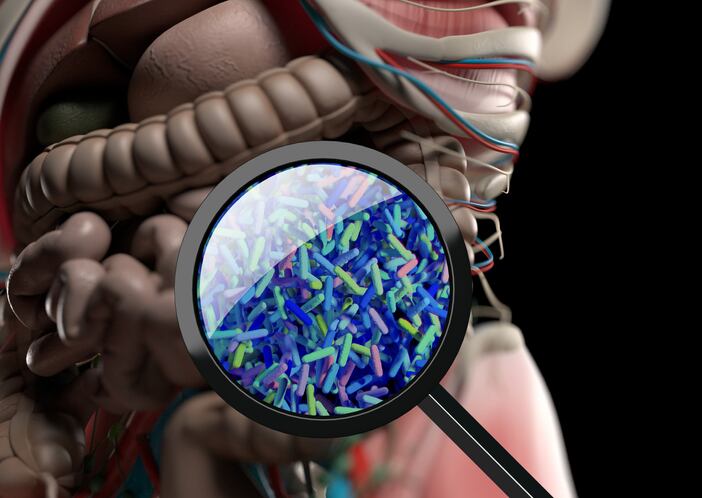The paper*, published in the peer-reviewed journal Cell, follows the publication of a draft guideline by the WHO suggesting that short term benefits of non-nutritive sweeteners are outweighed by "possible long-term undesirable effects,” prompting frustration among industry groups that said associations between diet sweetener use and metabolic syndrome likely reflect reverse causation (people with metabolic syndrome consume more diet drinks because they are watching their sugar/calorie intake).
The study – conducted by the Weizmann Institute of Science in Israel – adds further fuel to the fire by suggesting that some zero-calorie sweeteners may impact glucose tolerance via changes to the microbiome, although the authors acknowledge that not all diet sweeteners are the same and that the “clinical health implications of the changes they may elicit in humans remain unknown and merit future long-term studies.”
Methodology
In the randomized controlled trial – conducted on 120 healthy adults that did not previously consume non-nutritive sweeteners – subjects were divided into six groups: four were given six sachets a day containing either stevia, sucralose, aspartame or saccharin at levels well below acceptable daily intake levels with glucose as a bulking agent. A fifth group consumed sachets of glucose alone, and a sixth group received no supplementation.
Participants were asked to log food intake and physical activity via an app, but the rest of their diet was not controlled, something the ISA argued was problematic as changes in the microbiome could not definitively be attributed to the diet sweeteners.
The trial had three phases: A week of baseline measurements of metabolic, metabolomic, and microbial parameters, followed by two weeks of exposure to the sweeteners, and a one week follow-up.
Participants wore a continuous glucose monitor throughout the trial, while at-home glucose tolerance tests were performed on pre-determined days. Body measurements and blood tests were conducted at regular increments, while microbiome samples from stools and the mouth were collected at predetermined time points.
Results: ‘Saccharin and sucralose significantly impacted glucose tolerance in healthy adults’
According to senior author Dr Eran Elinav MD, PhD, head of the systems immunology department at the Weizmann Institute: “In subjects consuming the non-nutritive sweeteners, we could identify very distinct changes in the composition and function of gut microbes, and the molecules they secrete into peripheral blood. This seemed to suggest that gut microbes in the human body are rather responsive to each of these sweeteners.
“Saccharin and sucralose significantly impacted glucose tolerance in healthy adults. Interestingly, changes in the microbes were highly correlated with the alterations noted in people’s glycemic responses.”
Zero-cal sweeteners may impact gut microbe and in turn impact glycemic responses ‘in a highly personalized manner’
He told FoodNavigator-USA: “[This study] demonstrates that non-nutritive sweeteners are not inert, impact multiple aspects of our gut microbes and the molecules they secrete into our body, and these may impact glycemic responses in a highly personalized manner.
“Our results suggest that the gut microbes and the molecules they secrete were altered in all four non-nutritive sweetener consumers as groups, each in its unique way. These changes did not occur in the control groups. This means that non-nutritive sweeteners are not inert to the human microbiome.
“With respect to glycemic effects, these were altered in whole groups of humans consuming saccharin and sucralose, but not in whole groups consuming stevia and aspartame or people in the control groups."
According to the study, the groups eating the sachets of saccharin and sucralose with glucose as a bulking agent had a "significantly elevated glycemic response during exposure compared with the glucose vehicle" [ie. group 5, which just had sachets of glucose].
"This suggests that the glycemic responses induced by saccharin and sucralose - possibly by the gut microbiome - may be more pronounced when assessed at the group level.”
‘The clinical health implications of the changes they may elicit in humans remain unknown’
The researchers then transferred fecal samples from the study subjects to germ-free mice, Dr Elinav said in a press release accompanying the study. “In all of the non-nutritive sweetener groups, but in none of the controls, when we transferred into these sterile mice the microbiome of the top responder individuals collected at a time point in which they were consuming the respective non-nutritive sweeteners, the recipient mice developed glycemic alterations that very significantly mirrored those of the donor individuals.
“In contrast, the bottom responders’ microbiomes were mostly unable to elicit such glycemic responses. These results suggest that the microbiome changes in response to human consumption of non-nutritive sweeteners may, at times, induce glycemic changes in consumers in a highly personalized manner.”
But, he added: “the clinical health implications of the changes they may elicit in humans remain unknown and merit future long-term studies.”

"It is important to say that sugar consumption still constitutes a very bad and well-proven health risk for obesity, diabetes, and their health implications and our findings do not support or promote the consumption of sugar in any form or shape; we strongly believe that sugar consumption should be minimized and avoided as much as possible.
“Between all the options, unsweetened water seems to be the safest and best option.”
Dr Eran Elinav MD, PhD, head of the systems immunology department at the Weizmann Institute, Israel
‘The burden of proof of demonstrating or refuting their potential impacts on human health is the responsibility of those promoting their use’
Asked whether the WHO’s recent draft guideline "suggesting non-sugar sweeteners not be used as a means of achieving weight control or reducing risk of noncommunicable diseases” was sound advice, Dr Elinav told us: “The long-term clinical implications of our findings and those of others merit future randomized, interventional, and non-industry sponsored studies.
“In my opinion as a physician, once it has been noted that non-nutritive sweeteners are not inert to the human body, the burden of proof of demonstrating or refuting their potential impacts on human health is the responsibility of those promoting their use, and we should not assume they are safe until proven otherwise.
“Until then, I believe that the careful WHO draft guideline is balanced and adequate. It is important to say that sugar consumption still constitutes a very bad and well-proven health risk for obesity, diabetes, and their health implications and our findings do not support or promote the consumption of sugar in any form or shape; we strongly believe that sugar consumption should be minimized and avoided as much as possible.
“Between all the options, unsweetened water seems to be the safest and best option.”

Dr Robert Lustig: ‘This is a landmark study which the food industry will not be able to dismiss out-of-hand’

Pediatric neuroendocrinologist Robert Lustig – whose latest book boasts a characteristically provocative title: ‘Metabolical: The Lure and the Lies of Processed Food, Nutrition, and Modern Medicine,’ described the paper as a “landmark study.”
An earlier study by Dr Elinav’s team published in Nature in 2014 “threw a wrench into the diet sweetener narrative,” claimed Dr Lustig, “suggesting that they had detrimental metabolic effects on the intestinal microbiome and glucose intolerance that were unrelated to calories.”
At that time, he told FoodNavigator-USA, “the industry response was swift: ‘Correlation not causation, inadequate controls, mice not humans, inconsistent results, and not generalizable across diet sweeteners.’
“This new paper in Cell addresses each of these concerns to varying extents. They showed that: a) different diet sweeteners exert different metabolic effects, with sucralose and saccharin being the worst offenders; b) that not all people responded the same, some tolerated the diet sweetener without difficulty while others developed glucose intolerance; c) those who developed glucose intolerance did so because their microbiome changed; and d) transplantation of that microbiome into germ-free mice recapitulated the glucose intolerance, demonstrating causation.
“A few questions still remain, such as: what about erythritol and allulose, who are the most susceptible, what happens to insulin and in whom, and what does this mean for long-term weight gain and disease risk.
“Nonetheless, this is a landmark study which the food industry will not be able to dismiss out-of-hand.”
International Sweeteners Association (ISA): ‘Numerous clinical trials and systematic reviews of RCTs’ say zero-cal sweeteners do not adversely affect glycemic control
Sweeteners industry group the International Sweeteners Association (ISA), however, said that multiple clinical trials (click HERE, HERE and HERE) had repeatedly demonstrated that low/no calorie sweeteners do not adversely affect glycemic control, including a systemic review and meta-analysis recently conducted by the WHO.
A spokesperson told us that the wording in the press release that some non-nutritive sweeteners ‘can alter human consumers’ microbiomes in a way that can change their blood sugar levels’ is "not supported by results of numerous clinical trials and systematic reviews of RCTs, examining a range of low/no calorie sweeteners’ intakes and study conditions, and showing lack of effect of low/no calorie sweeteners on glycemia.”
The spokesperson added: “Differences in blood glucose reported in this study of healthy individuals may reflect inter- and intra-individual differences in glycemic responses to a home-performed glucose tolerance test. Moreover, long-term gold-standard glucose control marker (HbA1c) and other health markers were not affected by low/no calorie sweeteners in comparison to control groups.”
ISA: Study participants’ diet ‘while recorded, was not fully controlled’
The ISA also noted that a recent review of the literature found that changes in the diet unrelated to diet sweetener intake “are likely the major determinants of change in gut microbiota” and noted that the participants’ diet in Dr Elinav’s study, “while recorded, was not fully controlled. Therefore, the impact of dietary intake aspects beyond energy and nutrient intakes, such as intake of specific foods, which have been shown to induce changes in the gut microbiota composition, cannot be ruled out.”
Finally, said the ISA, “A lack of effect of different low/no calorie sweeteners on the microbiome is also supported by the results of recent human clinical studies [HERE, HERE and HERE].
“This is line with scientific opinions of regulatory authorities worldwide which have repeatedly confirmed the safety of all approved low/no calorie sweeteners including no adverse effect of low/no calorie sweeteners on gut microbiota.”

Calorie Control Council: ‘There appears to be no mechanism by which these low and no calorie sweeteners can impact the microbiota in such a way as to impact health’
Robert Rankin, president of the Calorie Control Council, which added: “The science of how changes to the gut microbiota affect human health is also still developing and not perfectly understood. Literature shows that the gut microbiota is able to be impacted by many dietary factors and is likely changing on a day-to-day basis. Studies of low -and no-calorie sweeteners establish no clear evidence of any adverse effect on the gut microbiota at doses relevant to human use.
“Further, results of metabolism and safety studies show no evidence of a likely mechanism for a clinically relevant effect on gut microbiota. Early safety assessments of sucralose, saccharin and acesulfame K prior to FDA approval of their use suggest no adverse effect on gut health or function, as evidenced by regulatory approvals worldwide. Therefore, there appears to be no mechanism by which these low and no calorie sweeteners can impact the microbiota in such a way as to impact health.”
Dr Rachel Cheatham: 'This doesn't mean consumers should necessarily try to completely avoid non-sugar sweeteners in their diet'
So what's the takeaway from all this?
Dr Rachel Cheatham, founder of food and nutrition consultancy FoodScape Group, told FoodNavigator-USA that the latest trial "certainly points to the likelihood that a) not all non-nutritive sweeteners behave in identical ways, b) non-nutritive sweeteners impact the gut microbiome in ways that may have undesirable downstream effects on blood sugar and/or insulin sensitivity, and c) any microbiome-driven glycemic changes are highly individualized."
But she added: "The biggest issue with this RCT is that while there was no significant difference in nutrient (carbohydrates, sugar, fiber, protein, fat and cholesterol) intake or physical activity between the groups, total dietary intake was not controlled for in the study design. This means that while the results can help inform further research, these particular findings are inconclusive at best.
"My overall takeaway is unchanged. WHO's recent guideline that non sugar sweeteners should not be used as a means of achieving weight control or reducing risk of non-communicable diseases remains a sound assessment based on the preponderance of available evidence.
"However, as noted previously, this doesn't mean consumers should necessarily try to completely avoid non-sugar sweeteners in their diet. Rather, there should be no expectation that regular consumption of non-sugar sweeteners will aid in weight management or disease prevention."
*Source: Suez et al. Personalized microbiome-driven effects of nonnutritive sweeteners on human glucose tolerance, Cell (2022). https://doi.org/10.1016/j.cell.2022.07.016

